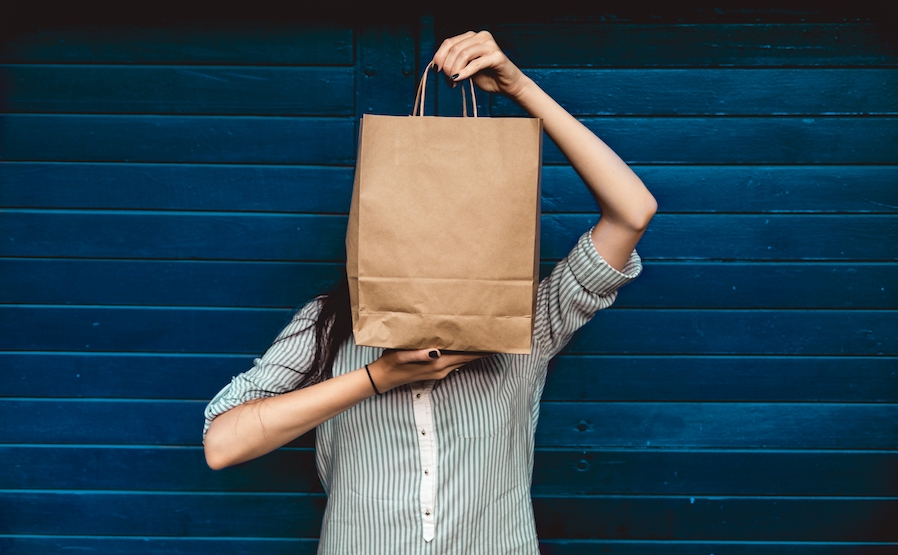Introverts and Extroverts Spend Money Differently, According to a New Study

We already know that introverts and extroverts approach the world differently. Compared to extroverts, introverts spend more time alone and get more drained by socializing. They prefer calm, low-key environments, whereas extroverts thrive in more exciting, fast-paced ones. In general, introverts need time to think before they speak and act, while extroverts are more prone to “thinking on their feet” and diving into new experiences quickly. As I explain in my book, The Secret Lives of Introverts, experts believe these variations are due to a biological difference in the way introverts and extroverts process rewards.
Now we know that introverts and extroverts also spend money differently.
In a recent study published in Psychological Science, researchers found that poor extroverts spent more money on luxury goods than poor introverts. The study used real life spending data from UK bank accounts, combined with personality assessments.
“We’ve shown that personality looks to be an important factor in how people respond to living with limited resources,” explained Dr. Joe Gladstone, study co-author from UCL School of Management.
The study analyzed thousands of transactions from 718 customers at a multinational bank over one year. The results took into account other factors that might influence spending habits, such as employment status, age, and sex. Researchers also looked at cash transactions.
The researchers sorted each person’s spending into categories, from very low status to very high status. High-status categories included things like golf, electronics, art, and foreign air travel. Low-status categories included things like discount stores, pawnbrokers, and salvage yards.
The results? Poor people spent differently depending on their level of extroversion. Those who rated high in extroversion spent more money on high-status items, compared with low-income people who were less extroverted.
“These people had the same financial resources and/or budget available to them, but our data show that they spent this money in very different ways,” noted Blaine Landis, study co-author from University College London.
Interestingly, the researchers found that personality-related differences in spending diminished as a person’s income increased. In other words, higher-income extroverts spent about the same amount on luxury goods as higher-income introverts.
“One way to interpret the gap narrowing among people with higher incomes is that they do not feel this sense of relative deprivation that [other] people do, and therefore we don’t see these personality differences emerging,” Landis told Introvert, Dear.
Why Introverts and Extroverts Spend Differently
Why might low-income extroverts spend more than low-income introverts on luxury goods?
Past research found that people who are sociable and outgoing (traits that are associated with extroversion) care more about their social status than others. Also, people who have less money tend to feel like they are of lower status in society. So, they may spend a higher percentage of their income on goods and services that are perceived to have a high status.
“Our findings suggest that extroverts compensate for having low income by spending more on items and experiences that reflect higher status,” explained Landis.
Of course, many introverts (regardless of their income) will tell you that they enjoy electronics, art, travel, and other “luxury” items, too. It isn’t that introverts don’t care about these things at all. Instead, it seems that some introverts just don’t feel as strong a need to spend money on things that will increase their social standing, compared to extroverts.
And there’s good news for introverts. Their tendency to spend less on luxury items when poor may help them financially, Landis told Introvert, Dear. It may put them in a better position to improve their financial lot in life.
Score one for Team Introvert.
We Don’t Have the Full Picture Yet
Landis and Gladstone caution that further research is needed. Because the study took place in the UK, we don’t know yet whether the results are representative of the population as a whole.
Also, the study is correlational, not causal. This means we don’t know which factors are causing the results. It could be that being poor causes some people to care more about their social status. Or, it could be that some variable other than extroversion makes people more responsive to their social status. We don’t have the full picture yet.
Nevertheless, the results are significant. Past research treated the experience of low income and relative deprivation as a condition that affected everyone — both introvert and extrovert — equally. “We hope this new association will help us better understand which people may be likely to engage in behavior that perpetuates the conditions of financial hardship,” explained Gladstone.
Did you enjoy this article? Sign up for our newsletters to get more stories like this.
Read this: The Reason Socializing Drains Introverts More Than Extroverts ![]()
Image credit: @unforbiddenyet via Twenty20
